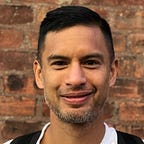Eugene Wei (Rad Awakenings Ep. 38)
Eugene Wei’s career cannot be described succinctly or linearly. He worked as an analyst at Amazon in the late 90s, went to film school, worked as a product manager at startups including Hulu and Flipboard and most recently was head of video for Facebook’s Oculus VR. Eugene always “seeks to be a novice” and eschews traditional “career rules.” I was drawn to Eugene’s blog by his grasp of the written word and the fluidity of his interests, ranging from tech, sports, culture, psychology, media, and storytelling. We talk a lot about reading, writing and communicating — why it’s important for product managers to read fiction and how great leaders create leverage through compression — tiny, repeatable and memorable messages. We also discuss what makes Jeff Bezos a unique leader, how to use data to become an “expert” and what he’s learned by studying high performance athletes.
If you enjoyed this interview, check out Venkatesh Rao and Auren Hoffman on the podcast.
Also on Google Play, Stitcher, and TuneIn
LEARN MORE ABOUT EUGENE WEI
- Eugene’s Blog Remains of the Day
- Follow @eugenewei on Twitter
- Eugene’s post Compress to Impress
LINKS REFERENCED
- Remains of the Day (book) and Tree of Life (Movie)
- Paul Graham Keep Your Identity Small
- Jason Fried The Writing Class I’d Like to Teach
- Amazon Shareholder Letter It’s Day One
- Buzzfeed’s I Tried Writing Like a CEO
HOW EUGENE READS NOW
The way I read now is only possible because of the Kindle. I tend to read multiple non-fiction books in parallel. I only came to this later in life and used to be one of those people who read one book cover-to-cover. Now I do this thing that resembles a modern social media feed of content from books, but I’m creating it by just following my interests. I open the Kindle [where I have hundreds of books] and I pick the one that most interests me at the moment, and just tell myself to read at least one full chapter. If it keeps my interest, I keep going for another chapter. But if not, I’ll jump to another book and read a full chapter. You can’t do this with fiction because you tend to lose the train of the plot and narrative, but non-fiction, so little of it is so linearly linked that you can’t disaggregate it in this way. The reason that I read this way and the advantage is that I start to see patterns across books in different topics. You may be reading one book on astronomy, business strategy, and another on language or rhetoric. Then suddenly something pops up that connects between those. It’s an advantage for me because it lets your interests pull you along rather than self-imposing a deadline to finish a book. And if a book doesn’t interest you, you just abandon it to save time and move to something more interesting.
WHAT MAKES JEFF BEZOS SUCH A GOOD COMMUNICATOR
→ Read More about Amazon and Jeff Bezos
He understood that you had to do a good job of encapsulating company strategy in a succinct and memorable way because the company was just so large and sprawling that it was so easy for the message to dissipate as it traveled from person to person. He did a good job of encoding the message and using rituals to ensure that the message was always emphasized.
Amazon had different themes for different years [like in Infinite Jest]. One year, we had studied different companies in history and discovered that at $1 bn in revenue companies go sideways or topple over due to scaling. Jeff was conscious of heading that off. We had a year called “Getting our House in Order” and the acronym was G.O.H.I.O. There was a contest to name the year and this was the most memorable name. You ask anyone at Amazon who was there at that year and they’ll say “Oh there was that year of G.O.H.I.O. with a concrete set of projects.” You go to most companies today and ask them, what’s our theme this year and they’ll have no idea. It seems silly to have a contest to name a theme, but it really hit home with every group of the company. You’d have that repeated at every meeting.
A FEW OTHER GEMS
- Riding big trends (i.e. the Internet in ’97): “Find the big wave, jump on, and let the chips fall where they may”
- Identity versus career credentials: “[I view myself] more as a bundle of capabilities and interests”
- Pushing yourself and being uncomfortable: “You have to push yourself to a point where you start making a high volume of mistakes.”
